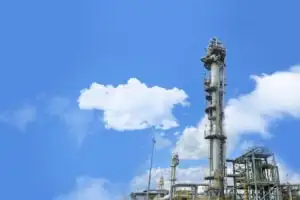Gas separation plays a critical role in numerous industries, including healthcare, manufacturing, energy, and more. Traditional gas separation methods have been utilised for many years, but the emergence of Pressure Swing Adsorption (PSA) technology has revolutionised the field. In this blog post, we will explore the advantages of PSA technology over traditional gas separation methods, highlighting its efficiency, flexibility, cost-effectiveness, and environmental benefits.
Efficiency of PSA Technology:
Selective Adsorption: PSA technology allows for the selective adsorption of gases, ensuring efficient separation of the desired gas from a gas mixture. The adsorbent material used in PSA systems has high selectivity, enabling precise separation and high-purity gas production.
Rapid Cycle Times: PSA systems offer rapid cycle times, allowing for continuous gas production with minimal downtime. The cyclic nature of PSA enables quick adsorption, desorption, and regeneration, resulting in a steady supply of the desired gas.
Flexibility in Gas Separation:
Wide Range of Applications: PSA technology can be adapted to separate various gases, including oxygen, nitrogen, hydrogen, carbon dioxide, and more. Its flexibility makes it suitable for diverse industries, ranging from medical and industrial to food and beverage.
On-Demand Gas Generation: PSA systems provide the advantage of on-demand gas generation. They can be tailored to produce gasses as needed, eliminating the need for bulk storage and transportation of gasses. This flexibility leads to cost savings and increased operational efficiency.
Cost-Effectiveness of PSA Technology:
Lower Energy Consumption: PSA technology requires lower energy consumption compared to traditional gas separation methods. The cyclic process of adsorption and desorption allows for efficient utilisation of energy, reducing operational costs.
Reduced Dependency on Gas Suppliers: By implementing PSA technology, industries can significantly reduce their reliance on external gas suppliers. This independence translates into long-term cost savings, as there is no need for recurring gas deliveries or rental contracts.
Environmental Benefits:
Minimal Waste Generation: PSA technology generates minimal waste during the gas separation process. Unlike traditional methods that may require chemical solvents or produce hazardous byproducts, PSA operates without the need for additional chemicals, ensuring a cleaner and more environmentally friendly process.
Lower Carbon Footprint: With its energy-efficient operation and reduced reliance on transportation, PSA technology contributes to a lower carbon footprint. By generating gases on-site, industries can minimise their environmental impact by eliminating transportation-related emissions and reducing overall energy consumption.
Conclusion:
Pressure Swing Adsorption (PSA) technology offers numerous advantages over traditional gas separation methods. Its efficiency, flexibility, cost-effectiveness, and environmental benefits make it a superior choice for gas separation in various industries. By adopting PSA technology, businesses can achieve reliable and high-purity gas production while optimising their operations and minimising their environmental impact.
